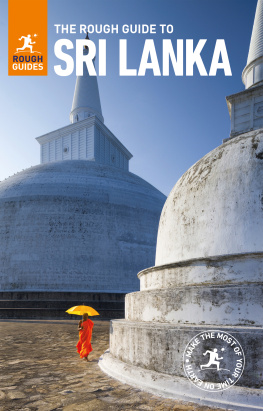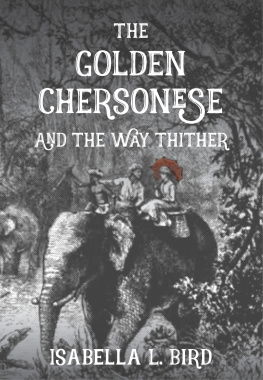First published in 1893 by
Routledge, Trench, Trbner & Co Ltd
Reprinted in 2000, 2002 by
Routledge
2 Park Square, Milton Park, Abingdon, Oxon, OX14 4RN
Transferred to Digital Printing 2007
Routledge is an imprint ofthe Taylor & Francis Group
1893 John Davies
All rights reserved. No part of this book may be reprinted or reproduced or utilized in any form or by any electronic, mechanical, or other means, now known or hereafter invented, including photocopying and recording, or in any information storage or retrieval system, without permission in writing from the publishers.
The publishers have made every effort to contact authors and copyright holders of the works reprinted in the Economic History series. This has not been possible in every case, however, and we would welcome correspondence from those individuals or organisations we have been unable to trace.
These reprints are taken from original copies of each book. In many cases the condition of these originals is not perfect. The publisher has gone to great lengths to ensure the quality of these reprints, but wishes to point out that certain characteristics of the original copies will, of necessity, be apparent in reprints thereof.
British Library Cataloguing in Publication Data
A CIP catalogue record for this book
is available from the British Library
The Bhagavad Gt
ISBN 0-415-24520-6
India: Religion and Philosophy: 10 Volumes
ISBN 0-415-24291-6
Triibners Oriental Series
ISBN 0-415-23188-4
ISBN 978-1-136-39008-1 (ePub)
.

THE Bhagavad Gt is a poem, written in the usual verse-form of the Hind epic poems, and is an episode in the sixth book, or Bhshma Parvan, of the Mahbhrata, an epic poem devoted mainly to the deeds of the rival princes, who, though descended from a common ancestor, Kuru, fought as Kauravas and Pavas for the kingdom of which Hastinpura was the capital. The facts which pre-ceded the opening scene of the poem are briefly these: Dhitarshra and Pu, the sons of Vysa, were brought up, after the death of their father, by their uncle Bhshma, who carried on, in their minority, the government of Hastinpura. Dhitarshra was the first-born, but being blind, he renounced the kingdom in favour of Pu. The former married Gndhr, daughter of Subala, king of Gndhra, and had one hundred sons, of whom Dur-yodhana was the eldest. Pu married Kunt, also called Pith, the daughter of a Yadava prince, Sura, who gave her in charge to his childless cousin, Kuntibhoja. She bore three sons, Yudishhira, Bhma, and Arjuna; the eldest (Yudishhira), being born before Duryodhana, was installed by Dhitarshra as Yuvarja, or heir-apparent,1 and soon distinguished himself by his warlike exploits, in which his brothers assisted him. The renown which the Pu princes acquired excited in Dhitarshra and his son Duryodhana a jealous desire to supplant them. The latter formed a plan to destroy them by setting fire to their house, and to obtain the throne for himself. This plan failed, and then he plotted with a skilful dice-player, called akuni, to take advantage of Yudishhira's love of gambling, and by leading him to stake his kingdom, to win it from him.
Dhitarshra was induced to call an assembly (sabh) at Hastinpura, which the Pavas were invited to attend. They came, and Duryodhana persuaded Yudishhira to play with akuni. He consented, and in the excitement of the game he staked successively his kingdom, his private possessions, and then his wife, Draupad. He lost them all, and Draupad was seized, and treated with great indignity as a slave. A compromise was, however, made: Duryodhana was to have the kingdom for twelve years, and during this time the five Pnclavas (including two sons, Nakula and Sahadeva, whose mother was Madr) were to live in exile. When the time of exile had expired, they determined to regain their kingdom by force; for Duryodhana, who is represented as being crafty and unprincipled, refused to restore it. Each party made prepa-rations for the contest, and sought to gain allies among the neighbouring kings. A large army was collected by each, the army of Duryodhana being commanded by his great-uncle Bhshma, and that of the Pavas by Bhma, the second son of Pu and Kunt. The two armies met on the sacred plain, the plain of the Kurus, and were drawn up in array against each other.
It is at this point that our poem begins. Arjuna occupies his war-chariot as one of the leaders of the Pavan host, and Kisha, disguised in human form, is his sta, or charioteer. Then, looking upon the two hosts, in each of which he had many relatives, the fortitude of Arjuna gave way. He directed his charioteer to drive between the two armies, that he might regard them more closely. Kisha obeyed the command, and Arjuna, overcome by pity and sorrow at the idea of killing his kinsmen, let fall his bow and arrow, and refused to fight.
Here the first book closes, and Kisha, who makes himself known at length as the Supreme Spirit (Paramtman), meets the objections of Arjuna by unfolding a philosophical system, which is a skilful union of the systems of Kapila and Patanjali, with a large admixture of the prevailing Brhmanic doctrines.
Its base is the theistic form of the Snkhya, as set forth by Patanjali, and this treats mainly of the One Supreme Being, eternal, infinite, the source and maintainer of all things, in whom all things are from time to time absorbed at the end of a kalpa, or period of creation; and of man, compounded of soul and body, whose highest state is a profound abstraction from all external things and union by meditation (yoga) with the Supreme. This is completed for ever by nirvana, or absorption into the very nature of Brahma, as a drop of water is absorbed or lost in the sea. In the Bhagavad Gt the Supreme Being is represented under five different forms or manifestations of being:(1.) As Adhytman, or Supreme Spirit: this spiritual essence is his proper nature (swabhva). In his relation to gods and men he is (2.) the Supreme Deity (Adhidaiva), as being both their origin and their ruler.
Of the existing kosmos, including men and mere forms of matter, he is (3.) the Indivisible (Akshara), the living energy which animates all living things, in which form he is sometimes called Jvabhta, the Principle of Life; and (4.) the Divisible (Kshara), the limited and various forms or individualities of men and things. Lastly, as the object and cause of religion, he is called (5.) the Lord of Sacrifice (Adhiyajna), and in this respect he is incarnated as Kisha, since it is difficult for flesh-encumbered mortals to rise to the conception and worship of a purely spiritual being (viii. 3, 4). As the Supreme Deity, Adhidaiva, he is also called Puruslia, which means both soul and a male being, for in this form he is the creator of gods and men.
This is a wide departure from the system of Kapila, who limited his speculations to the visible world, and what might be inferred by human reason, or known by the facts of consciousness. Like Fichte, he held apparently that man can know nothing above himself by any mental effort of his own, and can therefore have no direct knowledge of God. Sacrifice and religious worship found, therefore, no place in his system, or if it was accepted for some reason apart from his system, it was subordinate in itself and its results to philosophical knowledge. The author of the Gt takes a wholly different position on the question of a Supreme Being, and approaches more nearly the Vedntist system; but yet he differs very widely from the commonly received doctrines and ritual. In his view the Supreme Being is One, without a rival, without such attributes as were assigned to the gods in the popular belief, and unstained by any of their passions or vices. Prom whatever source his ideas were derived, whether from some knowledge which came from a system lying wholly apart from the Hind creed, or from the working of his own mind, he rose here to a height of conception far beyond the level of his age or his race. The unity of the divine nature was not wholly unknown to the Hind mind, but practically this idea was buried under a mass of ritual, whose offices were assigned to many gods, of varying degrees of power and goodness. The One Supreme Spirit appears, indeed, incarnate as Kisha, and here our author's Brahmanic training appears; but in his proper spiritual nature he is "the supreme Brahma, the supreme abode, the highest purification (the holiest of the holy,









